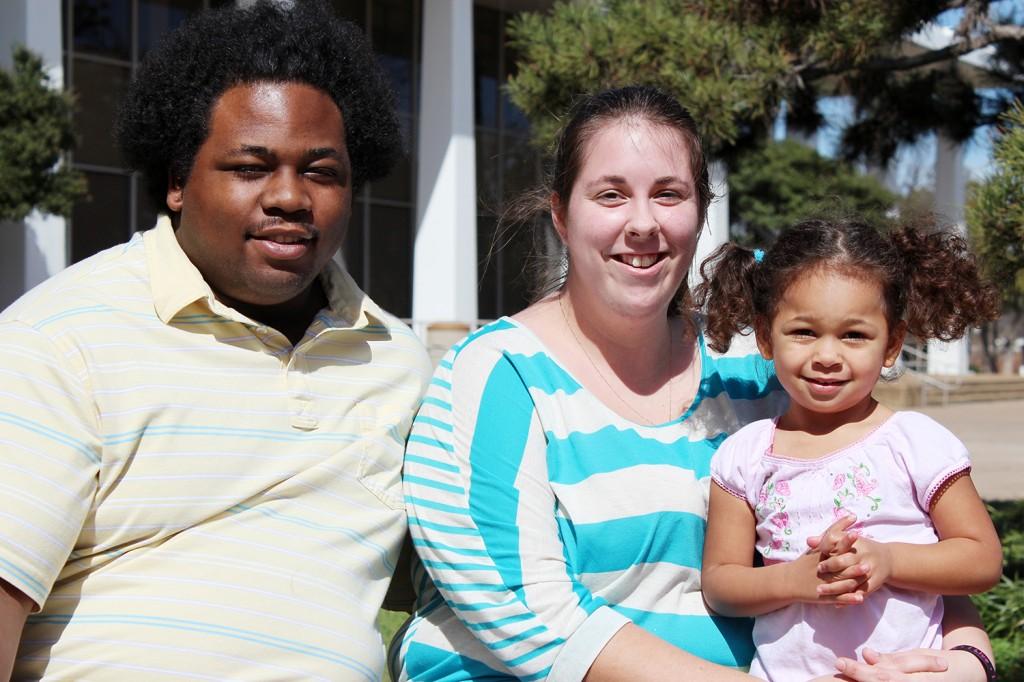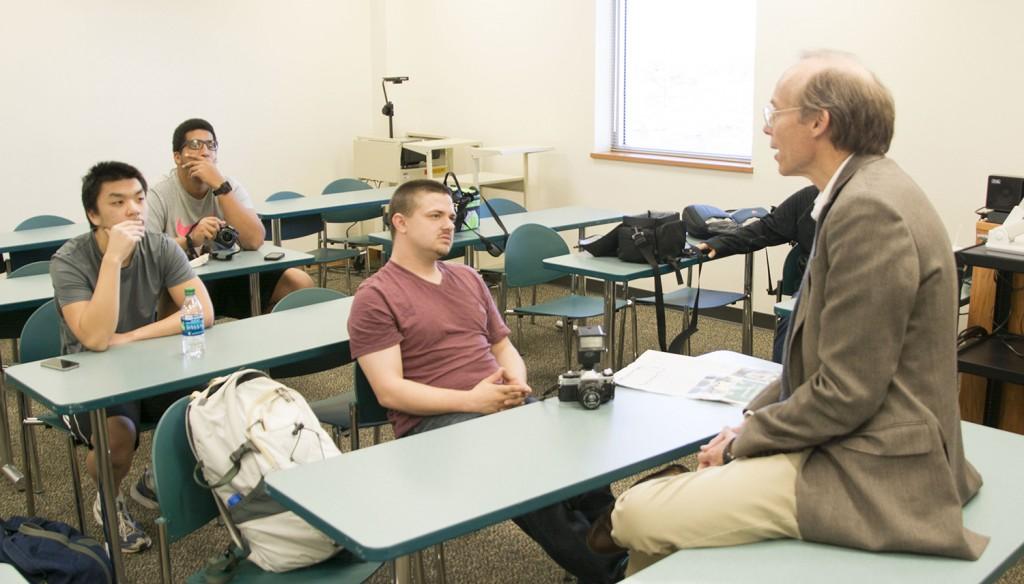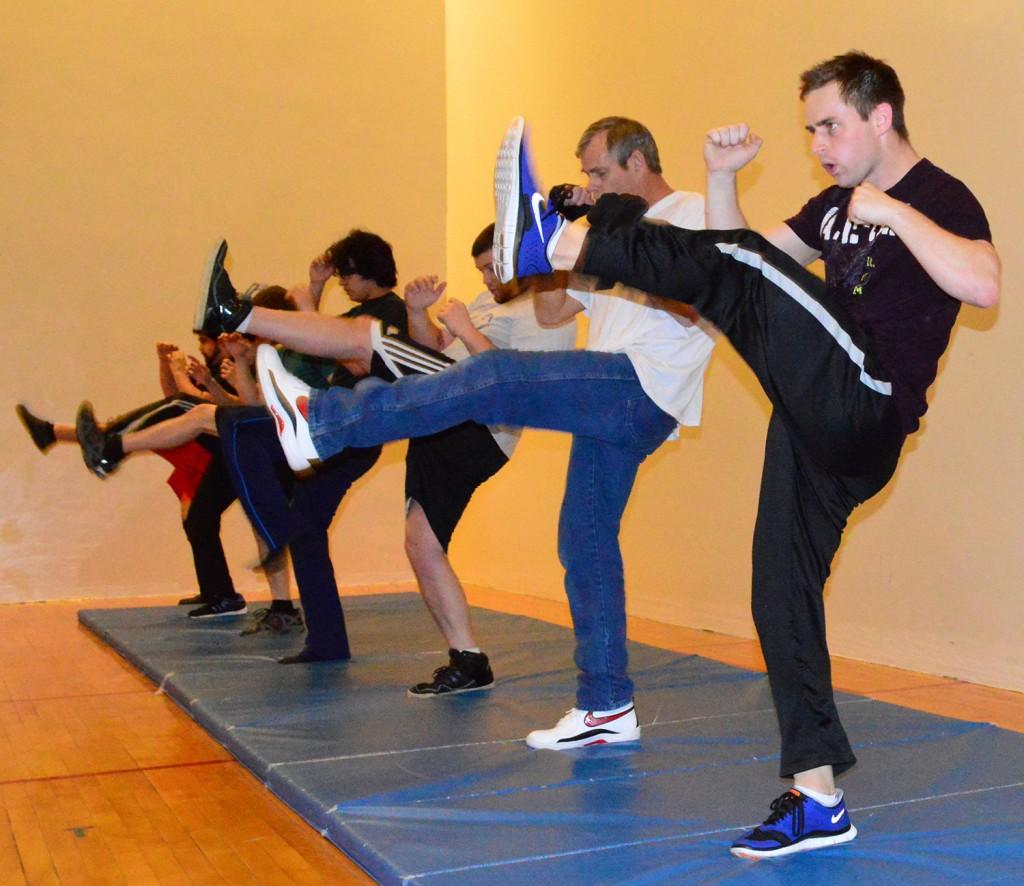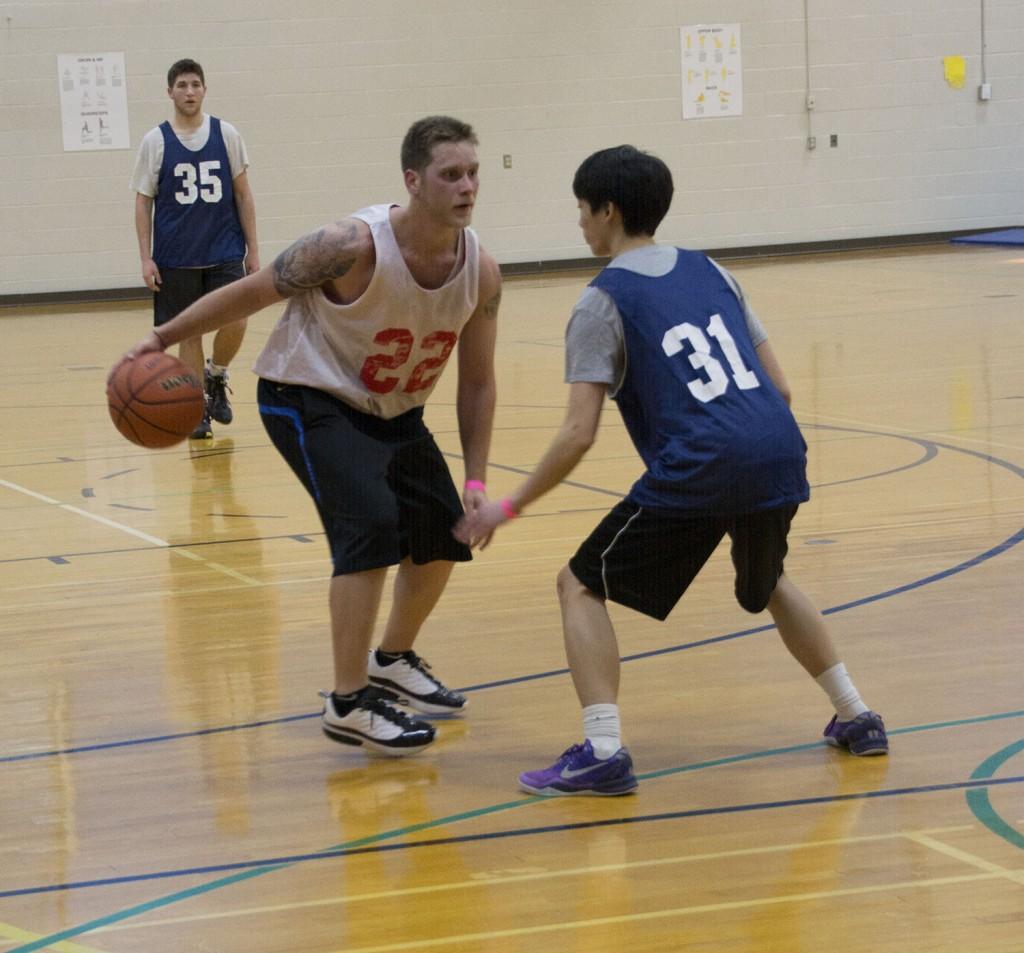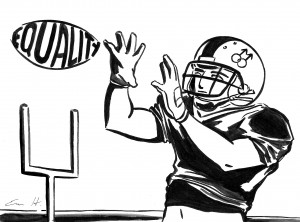
On Feb. 9, the National Football League was given the opportunity to take a huge leap forward toward the acceptance of the LGBT community.
Southeastern Conference Defensive Player of the Year and NFL draft prospect Michael Sam told ESPN and The New York Times that he is gay. If drafted in May, Sam will become the first openly gay player in the NFL.
Before the start of his senior year, the routine “introduce yourself” session for the University of Missouri football team took an unexpected turn. Sam, the 6-foot-3-inch, 260-pound team captain, crumpled his notes containing the typical hometown and school major, stood up and proudly announced to his team that he is gay.
Sam received supportive, positive feedback from his team and coaches, most of whom smiled with relief as if to say, “Finally. He came out.”
In a display of respect, as requested by Sam, the Tiger football team withheld its captain’s story from the media until he was ready to go public.
Students wearing “Stand With Sam” pins formed a human wall, protecting their star from the anti-gay hate group, the Westboro Baptist Church, which protested outside the stadium Feb. 15.
A few days after his public announcement, ESPN released a survey showing that support for Sam and all gay football players reaches far beyond Missouri. In the survey, 51 players from all 32 NFL teams responded to four true-false statements regarding teammates’ sexuality. Right off the bat, 44 of the 51 players (86 percent), said they didn’t care about a teammate’s sexual orientation.
Unfortunately, social change is never black and white. According to the survey, of the 51 players asked, 32 said they had a coach or teammate use a homophobic slur last season. When asked whether an openly gay player would be comfortable in an NFL locker room, only 25 said yes, 21 said no and five didn’t answer.
Keep in mind, the results of this study came immediately following an investigation into Richie Incognito, an offensive lineman released by the Miami Dolphins for over-the-top bullying and harassing another teammate. In a professional environment like the NFL, where hazing has been tolerated across the board, it’s no surprise players would be concerned with the treatment of a gay teammate behind closed doors.
Luckily, far more practical solutions can make someone feel more comfortable in a locker room. NFL Commissioner Roger Goodell met with 30 or more players from different teams to set up leaguewide standards that would create a more tolerant, professional work environment.
Progress aside, just the fact that Sam’s personal announcement is now a focal point for media shows that many Americans are still uncomfortable with the idea of a gay athlete.
In its 94-year existence, if the NFL refused to give in to social change every time its comfort was in question, Sunday Night Football would be comprised of only white men, wearing leather hats, running the ball every down.
Actor Paul Newman once said, “I’m a supporter of gay rights. There are so many qualities that make up a human being … by the time I get through with all the things I admire about people, what they do with their private parts is probably so low on the list that it is irrelevant.”
Unlike Mr. Newman, if we as a nation made a list of the average NFL player’s qualities starting with what we admire down to what we can’t tolerate, where would sexual preference fall? The embarrassing and rather outdated truth is that the gay team leader and college graduate ruffles more public feathers than the convicted drug dealer with a history of violence.
That needs to change. Thanks to Sam, it just might.
























